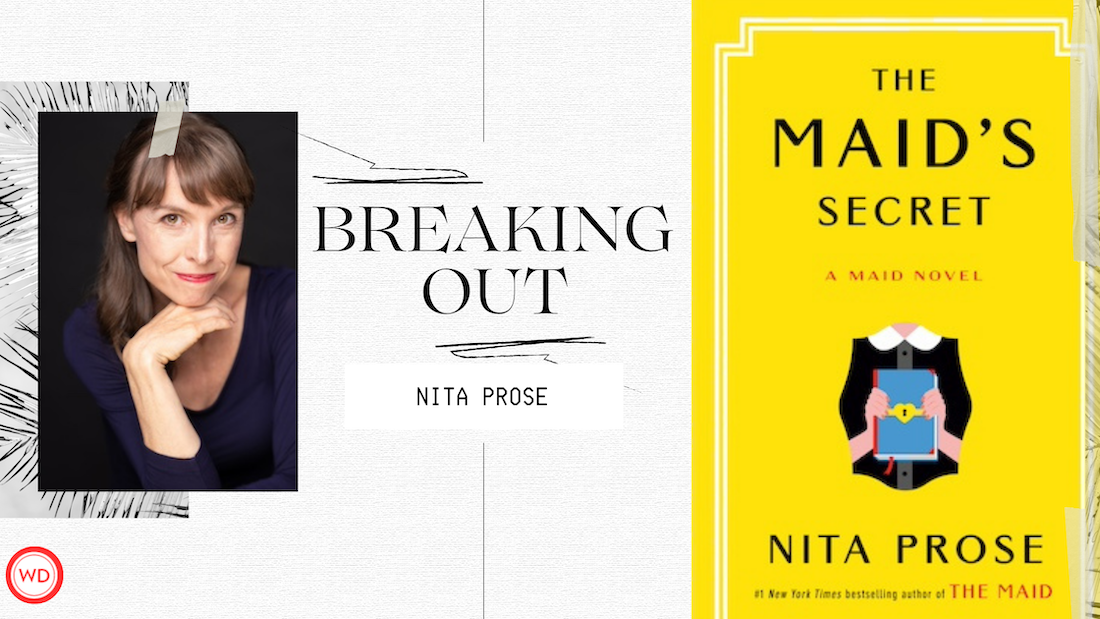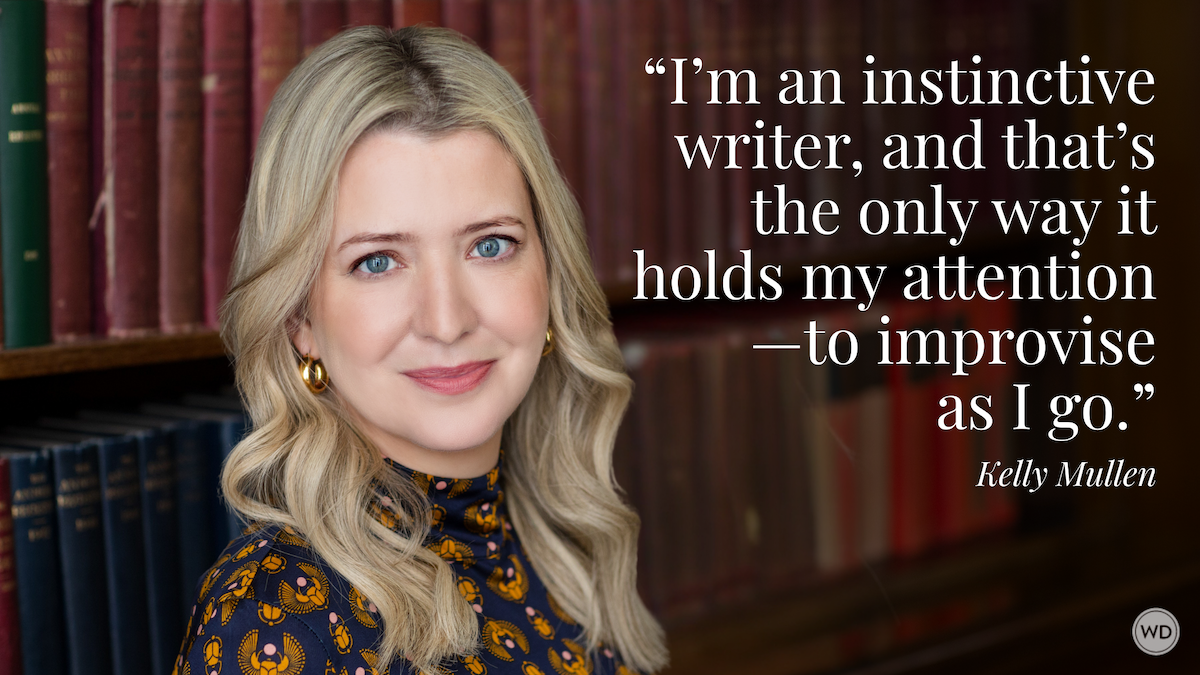Daniel Paisner: On the Pursuit of a Creative Life
Journalist and author Daniel Paisner discusses the process of writing his new literary fiction novel, Balloon Dog.
Daniel Paisner is an American journalist, author, and podcaster. He is best known for his work as a ghostwriter and collaborator. He has published more than 70 books, including 17 New York Times bestsellers. He is also the author of three novels, and several works of nonfiction. Some of his titles include The Girl in the Green Sweater: A Life in Holocaust's Shadow (2008), The Power of Broke (2016), and Last Man Down (2002).
Paisner hosts the podcast As Told To, in which he interviews other authors about their experiences ghostwriting and collaborating with notable figures. Find him on Twitter, LinkedIn, Facebook, and Instagram at @danpaisner and @astoldtopodcast, and visit his website danielpaisner.com.
In this post, Daniel discusses the process of writing his new literary fiction novel, Balloon Dog, what he hopes readers get from the experience, and more!
Name: Daniel Paisner
Literary agent: Mel Berger, William Morris Endeavor
Book title: Balloon Dog
Publisher: Koehler Books
Release date: June 21, 2022
Genre/category: Literary Fiction
Previous titles: FICTION: A Single Happened Thing, Mourning Wood, Obit; NONFICTION: The Ball, Horizontal Hold, The Imperfect Mirror, Heartlands; COLLABORATIONS: over 60 titles, including 17 NYT bestsellers, highlighted by the autobiographies/memoirs of Serena Williams, Denzel Washington, Whoopi Goldberg, Steve Aoki, John Kasich, Ron Darling, Daymond John, Ray Lewis, Missy Franklin, Gilbert Gottfried, Ed Koch, Mika Brzezinski, Holly Robinson Peete, Geraldo Rivera, Montel Williams, and others.
Elevator pitch for the book: A darkly comic tale of longing and legacy and letting go, Balloon Dog tells the story of a brazen art heist gone sideways and asks readers to consider what it means to leave a mark and what it takes to be swept up in the same currents that move the rest of the world.
IndieBound | Bookshop | Amazon
[WD uses affiliate links.]
What prompted you to write this book?
The novel turns on the attempted theft of an industrial-sized Jeff Koons balloon dog sculpture, lifted from a spectacular mountainside home. As it happened, I was staying at the spectacular oceanfront home belonging to the brother of a close friend, with a giant Calder sculpture on the front lawn.
When a rag-tag team of art storage movers arrived at the home early one weekend morning to dismantle the piece and cart it away for winter storage, it didn’t occur to my friend or any of us guests to contact the homeowner to see if these movers were legit, although it did occur to me that this would make a fine jumping-off point for a novel—in this case, a novel that looks askance at the art world and pushes readers to reflect on the choices they’ve made in their lives… and the choices that have been made for them.
Happily, the art movers were meant to be there that day to remove the massive Calder mobile-sculpture into a winter storage facility, but the spark for the novel had been lit.
How long did it take to go from idea to publication? And did the idea change during the process?
The book was written during the first months of COVID, when the world was put on pause. Most of the book was written outside, on a deck overlooking a small lake, and I think the setting pushed me to set a good deal of the book in the wide-open spaces of the great outdoors.
Also, the story was conceived as a contemporary piece, set in the present day, but as I got into it, I worried that to place the story in the true present, in a time of such upheaval, would be problematic. So I pivoted ever so slightly and set the book in the near-present, in that post-Trump/pre-COVID time when our shared uncertainty was not yet tied to a global pandemic.
The book took about six months to write, and then I set it aside for a couple months before taking another few months to revise/edit. My agent found enough things to like in the manuscript to start shopping it around about a year after I’d first put pen to paper—and, happily, we found a home for the book at Koehler Books approximately six months after we started making submissions.
Were there any surprises or learning moments in the publishing process for this title?
Yes and no. I’ve been down this road a bunch of times, leading up to publication of the collaborative books I tend to write, so I knew what to expect. What kind of snuck up on me, though, is how much more personal the process feels when it’s a book of my own.
I was so mightily impressed by the copy editor who worked with me on the book at Koehler Books, who helped to make the book so much tighter and stronger. And the art director who came up with the cover and page design was so crazy-talented that I came away from the process feeling immensely grateful.
I never expected to find so such top-tier talent at an indie press, and to be working with so many people who care so deeply about the books they publish.
Were there any surprises in the writing process for this book?
I’m one of those arrogant, ever-hopeful novelists who doesn’t work with an outline. When I start in on a new book, I have an idea for a story, a world I want to visit and some characters I want to join me on that visit, and that’s pretty much it.
What that means is every day was filled with surprises in the writing process. I knew I’d start with the art heist at the heart of the story, but the rest of the novel unfolded for me as I went along. At some point, a sense of an ending emerged, but even then, I wasn’t entirely sure how I’d get there… until, at last, I arrived.
What do you hope readers will get out of your book?
I want readers to be engaged and entertained, of course, but I also want them to think (at least, a little bit) about what it means to be a creative person, what it means to create something of value, what it means to make an impression on the people who mean the most to you. The book is wildly funny in spots and agonizingly truthful in others, so I’m not exactly sure how it will play for a general reader of contemporary fiction.
My hope is that readers will find the stuff of life in these pages—you know, triumph and disappointment, hope and hopelessness, grace and gracelessness… all that good stuff. At bottom, it feels to me like a story of what it means to matter—and, how (and when!) as you start to realize that you don’t really matter much at all.
If you could share one piece of advice with other writers, what would it be?
There are two knee-jerk responses to a prompt like this one. The first is to encourage aspiring writers to simply sit their butts in the chair and write. The second is to read as much as possible—freely, widely, curiously. To be sure, you can’t write if you don’t sharpen your pencil and have at it, and you can’t consider yourself a storyteller or if you don’t osmose as much as you can from other writers and begin to see what’s possible.
But there’s a third response I don’t hear from veteran writers, and that’s this: Move about the planet with open eyes. Keep your ear to the ground. Smell the roses. Taste everything on offer. Abuse all the senses (and every tired cliché that attaches to them) in a never-ending study of the human condition and the world around. Get outside and live. Drink in whatever’s on tap. So I guess that’s three pieces of advice, rolled into one: Write, read, live.
Robert Lee Brewer is Senior Editor of Writer's Digest, which includes managing the content on WritersDigest.com and programming virtual conferences. He's the author of 40 Plot Twist Prompts for Writers: Writing Ideas for Bending Stories in New Directions, The Complete Guide of Poetic Forms: 100+ Poetic Form Definitions and Examples for Poets, Poem-a-Day: 365 Poetry Writing Prompts for a Year of Poeming, and more. Also, he's the editor of Writer's Market, Poet's Market, and Guide to Literary Agents. Follow him on Twitter @robertleebrewer.








